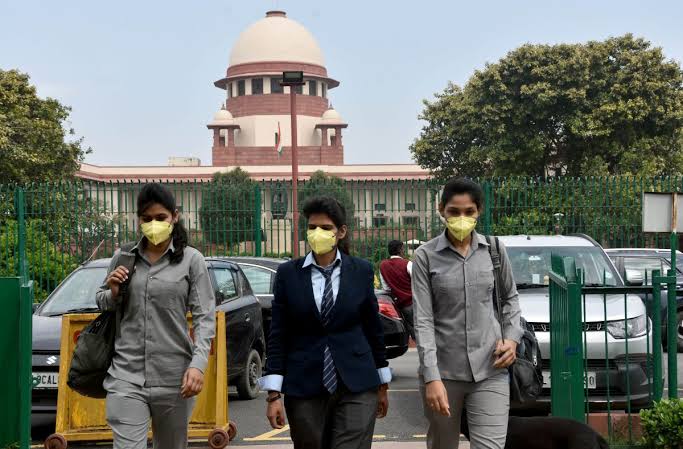


The Supreme Court has launched an initiative to facilitate the sharing of digitised copies of paper books with Advocates-on-Record (AoRs) for its common use by lawyers and judges during court hearings.The project will commence on a pilot basis from the Chief Justice of India's courtroom from today, January 25.The initiative has been launched in the wake of concerns that the page numbers of paper books being used for court hearings were not uniform, leading to inconveniences and loss of time."An issue has been flagged about variation in reference to page numbers of the scanned and digitized paper books during court proceedings. Such variation often causes grave inconvenience and loss of invaluable time of the Court and the members of the bar," a notice issued by the Court's Registrar reads.The sharing of digitised pleadings is, thus, meant to act as a remedial measure to address these concerns.The digitally circulated paper books would be segregated into three separate portable document format (PDF) files, for petitions, additional documents and office reports."The bookmarks in these PDFs would be standardized and all steps would be taken to maintain in seriatim chronology of documents. The PDFs shall be accessible on the e-Filing dashboard," stated the Registrar's notice.Detailed instructions on how to access these documents have also been provided in the notice.Earlier this week, Chief Justice of India (CJI) DY Chandrachud had announced that such measures would be taken towards addressing issues with pagination in soft copies of pleadings during hearings before the Supreme Court."I have always found that members of the bar and the bench are not on the same page with regard to the tallying of paginated soft copies of PDFs," he had observed.On a related note, in August 2023, the Supreme Court issued guidelines for filing written submissions and compilations before Constitution Benches and in important final-hearing cases.The guidelines provide a standard operating procedure (SOP) for filing soft copies of written submissions and common compilations of documents, rules and precedents. It also calls for fixed timelines for oral arguments in such matters.As per the guidelines, the concerned bench will in advance nominate one nodal counsel each from both sides.The guidelines also specify the format in which the volumes will be filed.In the event the Court grants permission for the submission of supplementary materials, such materials should be assigned consecutive page numbers, properly indexed and bookmarked and included in the relevant volumes.
All arguing counsel must inform the nodal counsel about the tentative timelines for their oral arguments at least five days before the commencement of the hearing, the guidelines added.Further, nodal counsel will then prepare and present a statement of the proposed timelines for all counsel after which the Court will prescribe timelines for oral arguments to be adhered to by all counsel.
TAGS: Supreme Court Initiative Digitised copies Paper books Advocates-on-Record (AoRs) Chief Justice of India